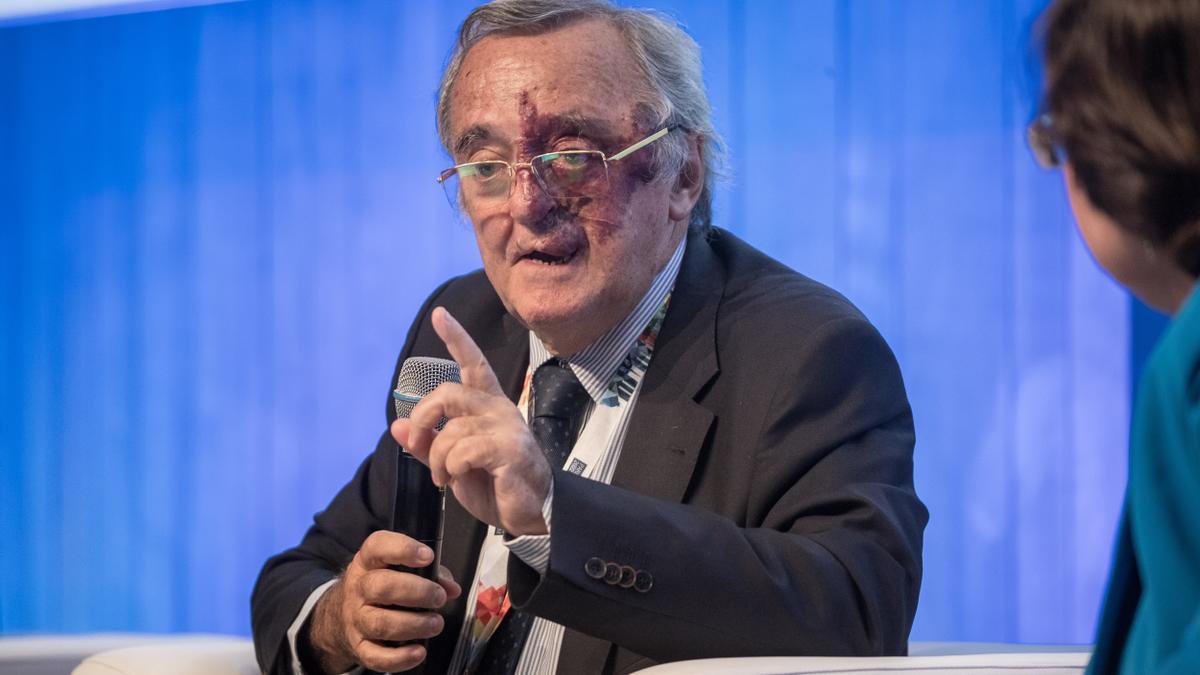The incidence of cancer it will go further in the next few years due to the aging of the population, says the biochemist and researcher Mariano Barbacide which, however, points out that the overall survival of all cancers will increase, because drugs are increasingly “less harmful and less toxic”.
In an interview with Efe at the congress that the European Society of Medical Oncology (ESMO) is holding in Paris, Barbacid clarifies that cancer must be given “names and surnames”, because in some cancers research is advancing very rapidly, such as breast or prostate with survival rates of 90% and 95%; while in others the chances of survival are “unacceptable”, such as that of the pancreas, less than 5%.
Although mortality from many cancers is falling, many times over thanks to changes in habits such as less consumption of tobacco, Barbacid recalls that there are other cancers, such as pancreatic cancer and glioblastomas (brain tumors), which “resist” and there is an increase in both incidence and mortality.
Barbacid, who 40 years ago discovered the KRAS oncogene responsible for the onset of pancreatic cancer admits that today there is no effective solution to deal with it“The drugs of the last century continue to be administered and the immunotherapy does not work”.
Recently, and after 40 years of research, Barbacid appreciates the fact that a drug has finally been approved for one of the more than 20 mutations of the KRAS oncongene, although that mutation is only in the lung and is caused by tobaccotherefore it is not useful for pancreatic cancer, which is still on the list of the most aggressive.
And although research at the molecular level is progressing, the clinic that provides drugs or therapies is not in pancreatic cancer Barbacid has seen no solution for five years and he trusts in the good results of science, but “in the more distant future”.
Making cancer chronic today means increasing survival
This expert, who created the first Spanish National Cancer Center (CNIO), stresses that early diagnosis is a fundamental tool in all cancersbut it is not possible in the case of the pancreas, “which does not feel and, therefore, is so difficult to cure”.
Trust that the tests for detect the presence of tumor DNA in the blood when there are no signs of the disease or, at least, when cancer has not spread they may be a “someday” reality, but it is a possibility that does not see in the near horizon.
He admits that screening is important “when it can be done” (such as a colonoscopy for colon cancer, a PSA test for prostate cancer, or a mammogram for breast cancer), but there are cancers that, today, do not benefit from these testssuch as those of the pancreas or lung.
And for the latter the best prevention is not to smoke. “If we don’t smoke, the chances of suffering from it decrease significantly,” she says.
Therefore, Barbacid understands this The issue of chronic cancer must be taken with caution and what he sees plausible in the short or medium term is to increase survival, more years of life and with better quality.
Cancer is not one disease, but more than a hundred
Barbacid argues that cancer is not a disease, but it is a set of more than a hundred, very different from each othersome move fast and some move slowly, and this is something that has not yet been assimilated.
For this scientist, it is important to show society that progress is being made, but that there are many difficulties, because “The process is slow and the only solution is to investigate, today and tomorrow”.
Barbacid bets on the transfer to the population of the the importance of acquiring healthy habitssuch as quitting smoking or expanding non-smoking spaces, because this, he says, will result in better survival, especially in lung cancer, which is around 20% at five years.
Not a very high percentage, but ten times greater than 20 years agowhen it was 2%.
Vaccines are not a solution for most cancers
On the possibility of vaccines to tackle cancer, Barbacid explains it they would only work when the tumor is caused by an external viral agentlike that of the cervix or cervix produced by the human papilloma virus (HPV).
In this case, the vaccine works and this cancer is 99% preventable and avoidable..
But – remember – most cancers do not have a viral origin, but they are genetic mutations and, therefore, there is no possibility of vaccination.
admits it the pandemic triggered the investigation and obtained a vaccine in record time against a virus, but the cancer case understands that it is different due to the enormous diversity.
The magic words for cancer: prevention and research
And in the context of the congress of European oncologists, this scientist emphasizes the need for researchers and academics to engage with industrywhich is the one that develops drugs that “cost millions and are impossible for our budgets”.
Related news
He argues that the “magic” words are prevention and research, because there will be an increasing incidence of cancer due to aging; Y calls on governments to support innovation: “That would help a lot,” he says.
However, he believes that research funding is not the limiting factor because the industry invests heavily, the “limiting factor”, in his opinion, is the complexity of the tumorwhich makes us “advance slower than we would like”.
–


